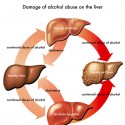5 Ways Parents Can Prevent Teenage Drinking
Teenage drinking is such a health risk that pediatricians are now being told to screen all teenagers—and even sixth graders—for alcohol use. That new policy from the American Academy of Pediatrics can be a powerful tool for parents to help their children avoid trouble with alcohol. But first, parents need to learn to give teenagers some privacy in the doctor’s office.
“Tenacious parents who will not leave the examination room” are cited as a major barrier to routine screening for alcohol and drug use by pediatricians in the new teen alcohol screening policy. And what 13-year-old would want to tell Mom she pounded five Vodka Cruisers at a party? “We want to keep families involved,” Patricia Kokotailo, director of adolescent medicine at the University of Wisconsin School of Medicine and Public Health told me, “but some things are very difficult for teenagers to express if it’s not confidential.” She is also lead author of the new guidelines. When Kokotailo sees teenagers in the office, she usually talks with them privately before speaking to the family as a whole, but doesn’t reveal anything that children want kept private.

Teenage drinking is a growing problem.
Mounting research showing that the teenage brain is in the midst an amazing developmental phase was a chief driver behind the call for universal screening for alcohol use. That brain growth spurt gives teens remarkable cognitive powers, but also leaves their brains more vulnerable to the damaging effects of alcohol, drugs, and tobacco. Recent research has also shown that the earlier teenagers start drinking, the more likely they are to have problems as adults with school, jobs, and relationships.
There’s abundant evidence that no matter how much teenagers diss grown-ups, they still view their parents as their biggest role models. And while the pediatricians are calling for some privacy in the exam room, they emphasize that strong parental involvement is key to controlling teens’ drinking. That’s great motivation to tell your children what you might have hesitated to say before:
- Talk with your children about your family’s history of alcohol or drug use. There’s a genetic component to alcoholism, and kids should know if they’re at greater risk of problems.
- Give your children one-on-one time with the pediatrician. Think of it as their lesson in how to navigate the healthcare system.
- Set a firm policy: No alcohol, drugs, or tobacco until age 21. Use the new research on the teenage brain to explain that this is about keeping those brains safe.
- Never host a teenage party with drugs or alcohol. “The liability is enormous if one of those kids goes out and drives and kills himself, or others,” says Kokotailo.
- Show your kids how to use alcohol responsibly; have a beer, sure, but don’t get drunk. Current federal dietary guidelines call for no more than one drink a day for women, two for men.
“Prevention is a big thing,” Kokotailo told me. “We now know better how alcohol affects the brain and neurodevelopment of young people.” Her hope is that with more pediatricians asking about teenage drinking, and with more parents telling children what they need to know about alcohol and keeping a close eye on their behavior, teenagers will be better equipped to make their way to a healthy adulthood.
source: U.S News and World Report

